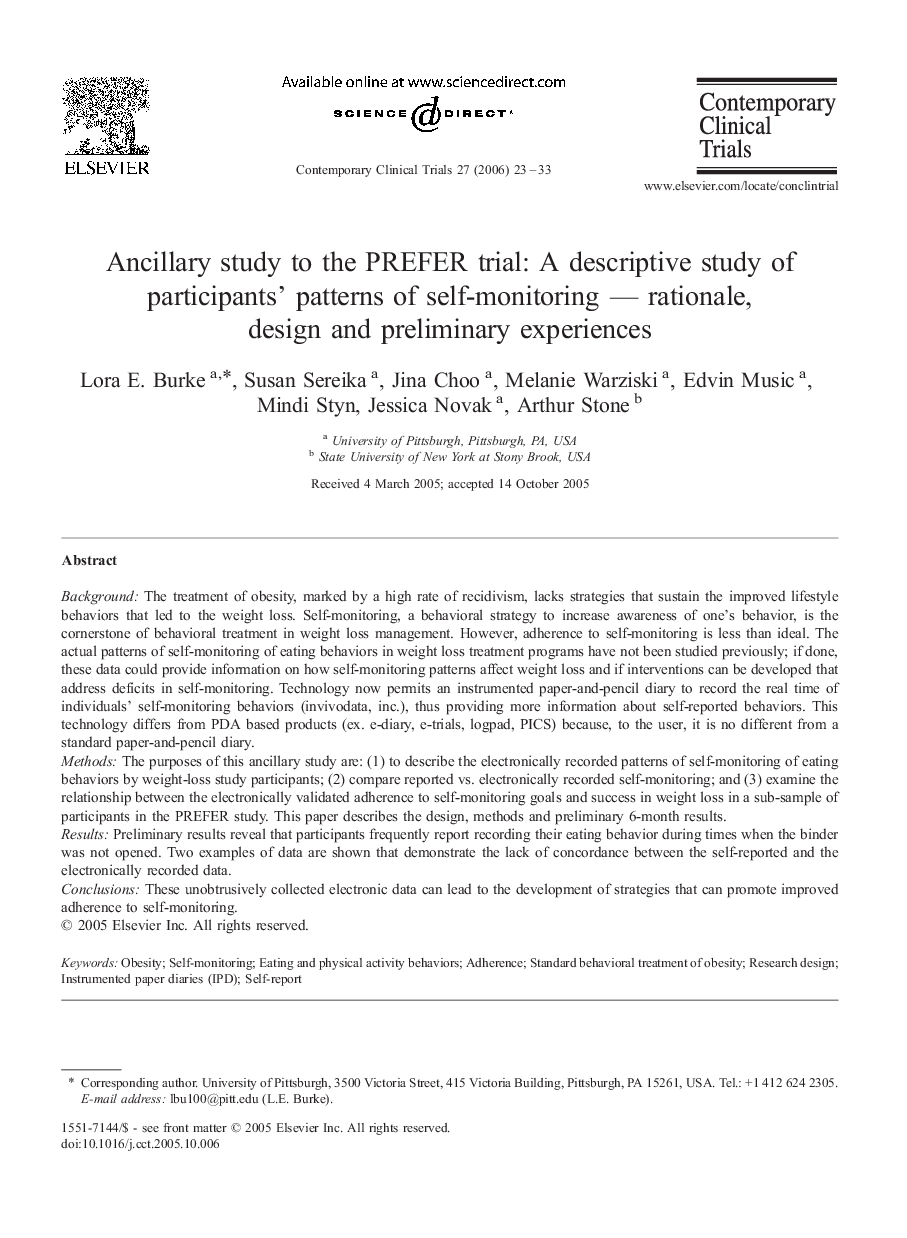| Article ID | Journal | Published Year | Pages | File Type |
|---|---|---|---|---|
| 3463494 | Contemporary Clinical Trials | 2006 | 11 Pages |
BackgroundThe treatment of obesity, marked by a high rate of recidivism, lacks strategies that sustain the improved lifestyle behaviors that led to the weight loss. Self-monitoring, a behavioral strategy to increase awareness of one's behavior, is the cornerstone of behavioral treatment in weight loss management. However, adherence to self-monitoring is less than ideal. The actual patterns of self-monitoring of eating behaviors in weight loss treatment programs have not been studied previously; if done, these data could provide information on how self-monitoring patterns affect weight loss and if interventions can be developed that address deficits in self-monitoring. Technology now permits an instrumented paper-and-pencil diary to record the real time of individuals' self-monitoring behaviors (invivodata, inc.), thus providing more information about self-reported behaviors. This technology differs from PDA based products (ex. e-diary, e-trials, logpad, PICS) because, to the user, it is no different from a standard paper-and-pencil diary.MethodsThe purposes of this ancillary study are: (1) to describe the electronically recorded patterns of self-monitoring of eating behaviors by weight-loss study participants; (2) compare reported vs. electronically recorded self-monitoring; and (3) examine the relationship between the electronically validated adherence to self-monitoring goals and success in weight loss in a sub-sample of participants in the PREFER study. This paper describes the design, methods and preliminary 6-month results.ResultsPreliminary results reveal that participants frequently report recording their eating behavior during times when the binder was not opened. Two examples of data are shown that demonstrate the lack of concordance between the self-reported and the electronically recorded data.ConclusionsThese unobtrusively collected electronic data can lead to the development of strategies that can promote improved adherence to self-monitoring.
